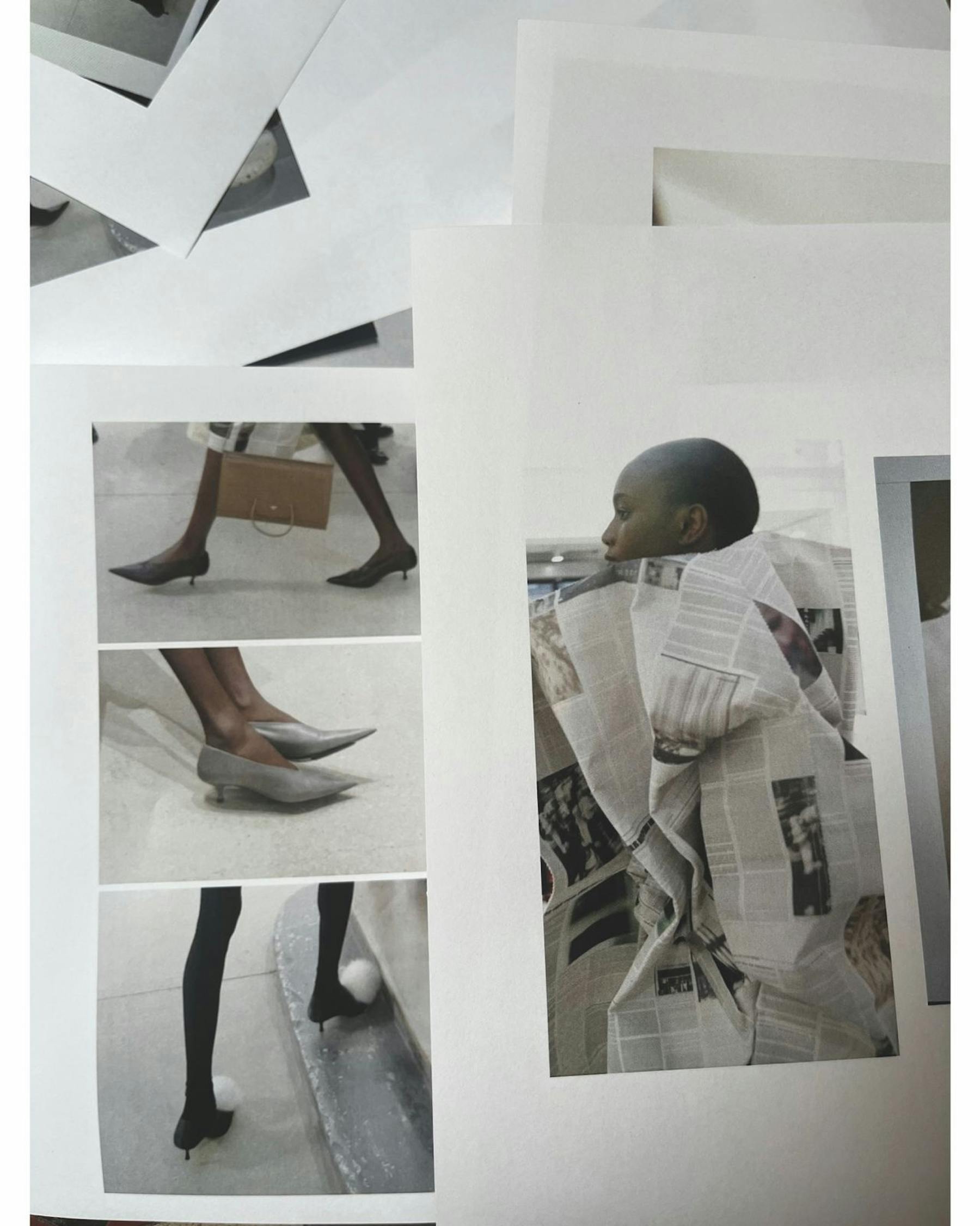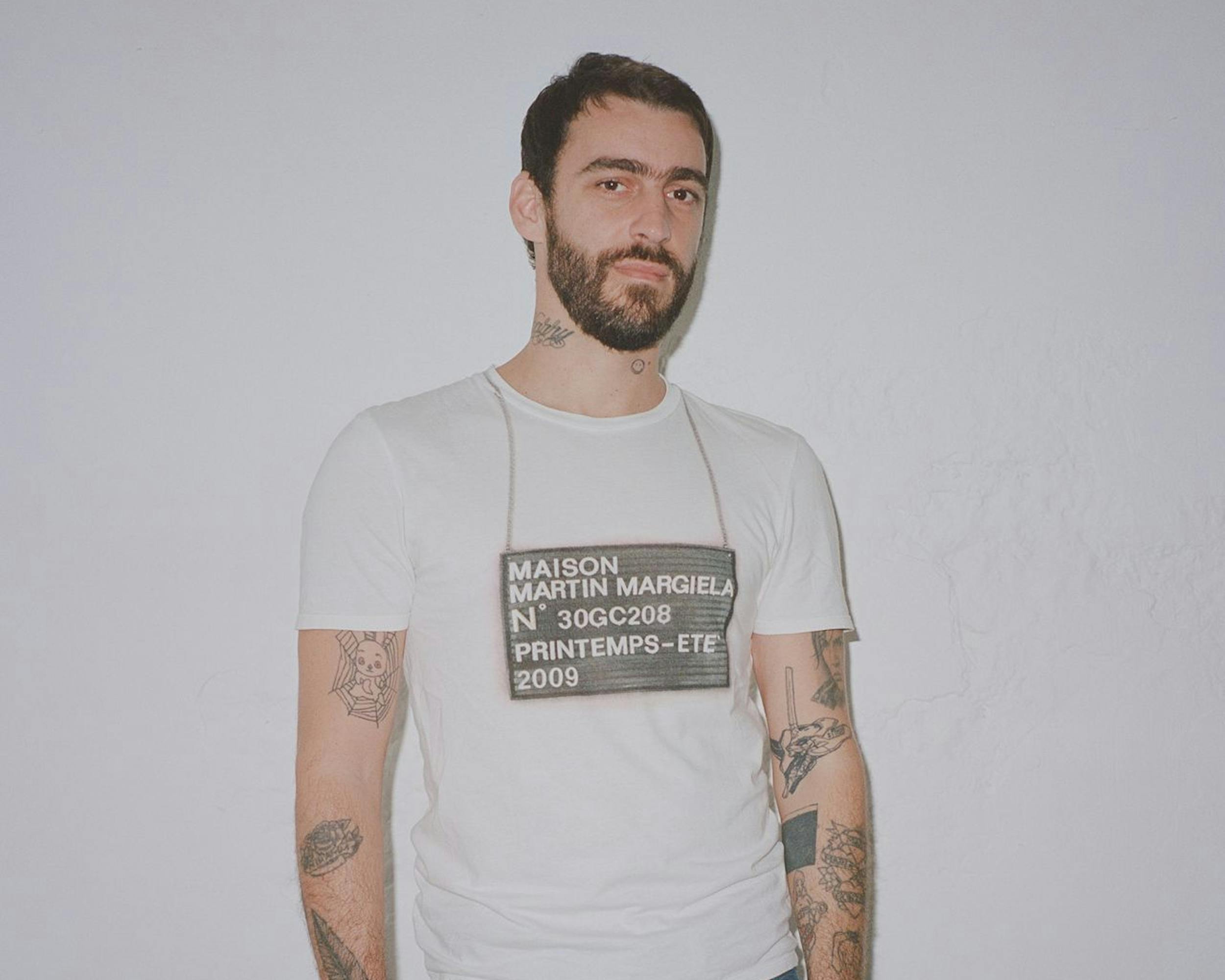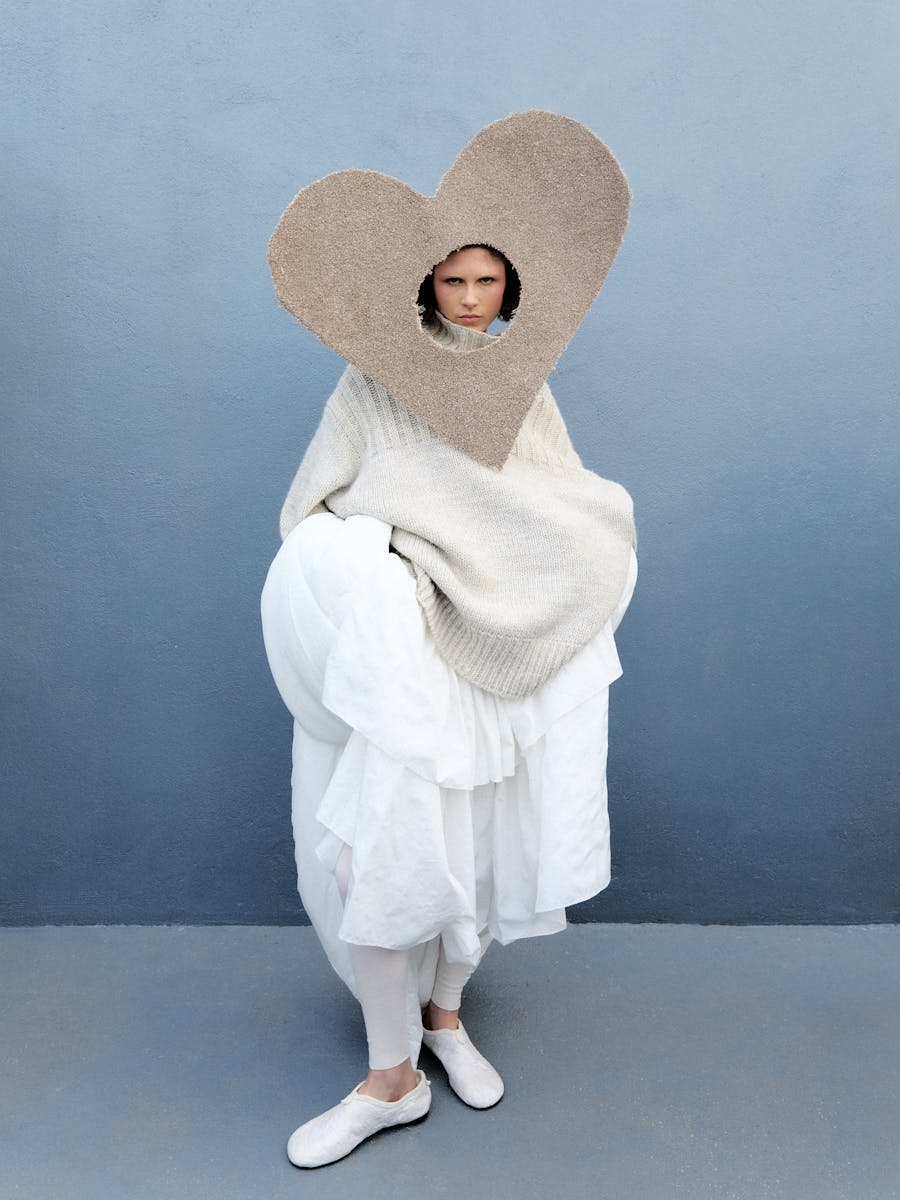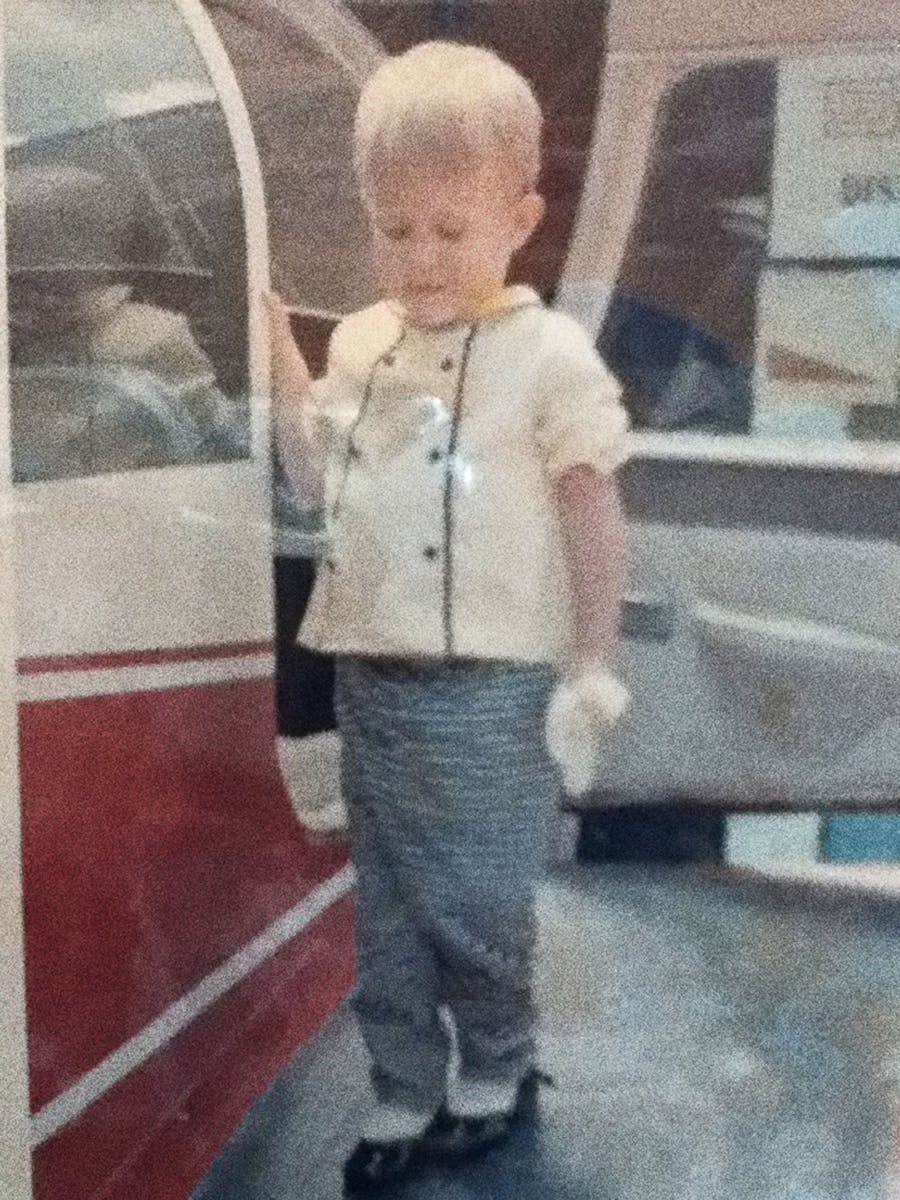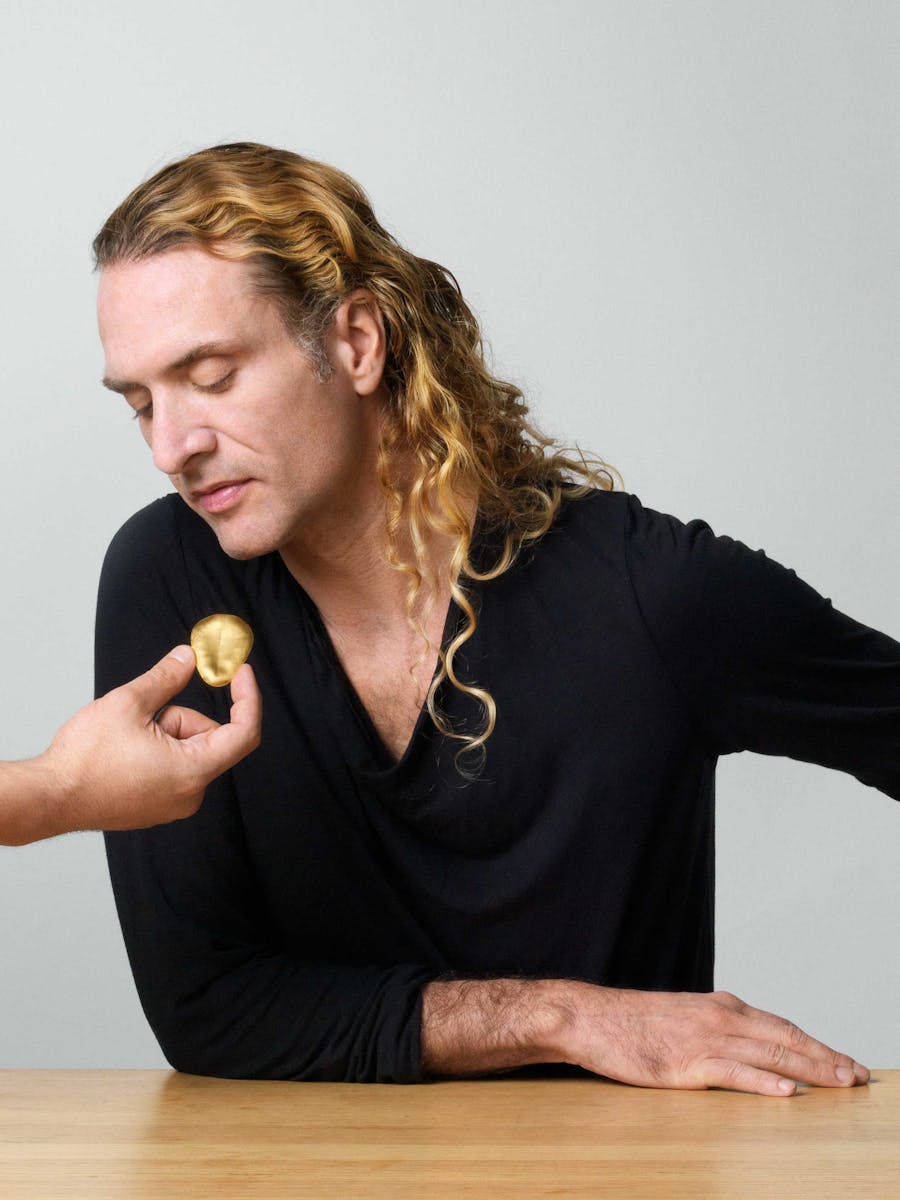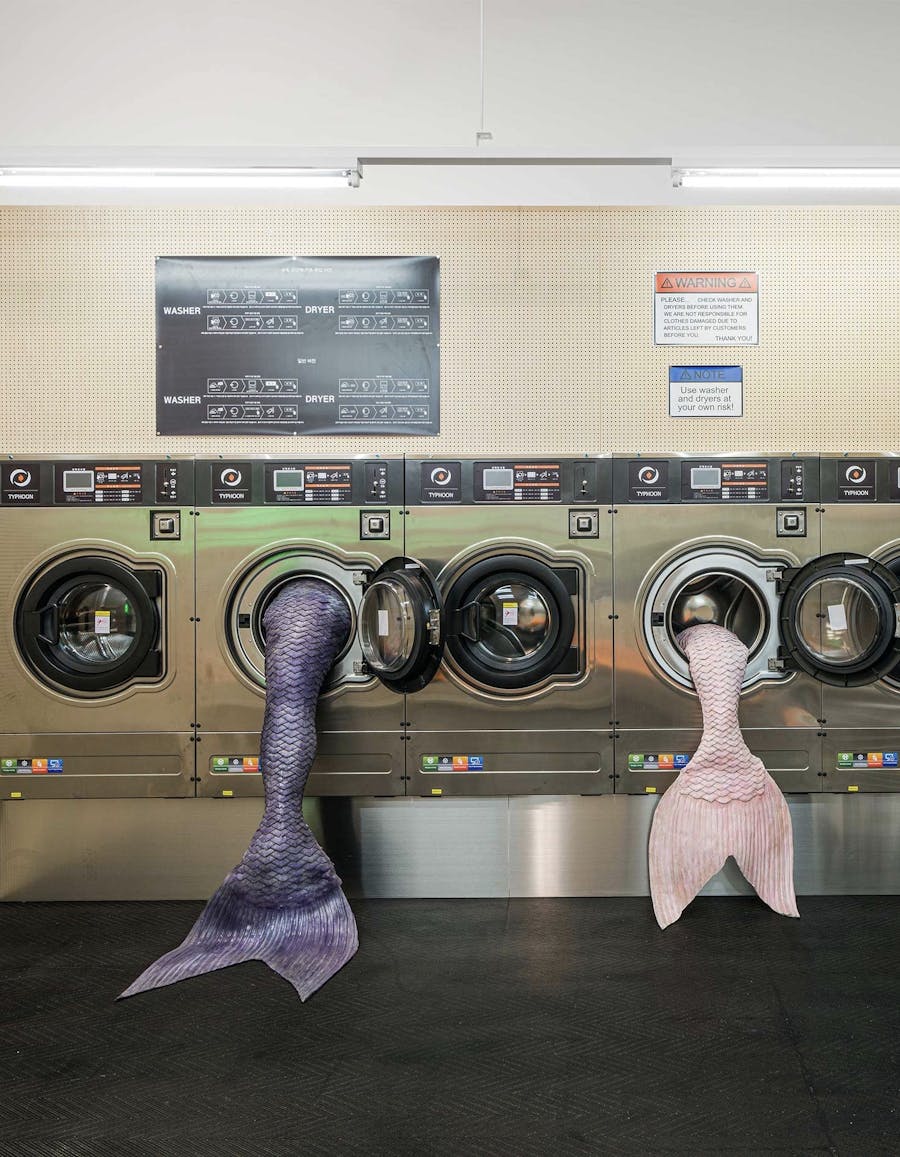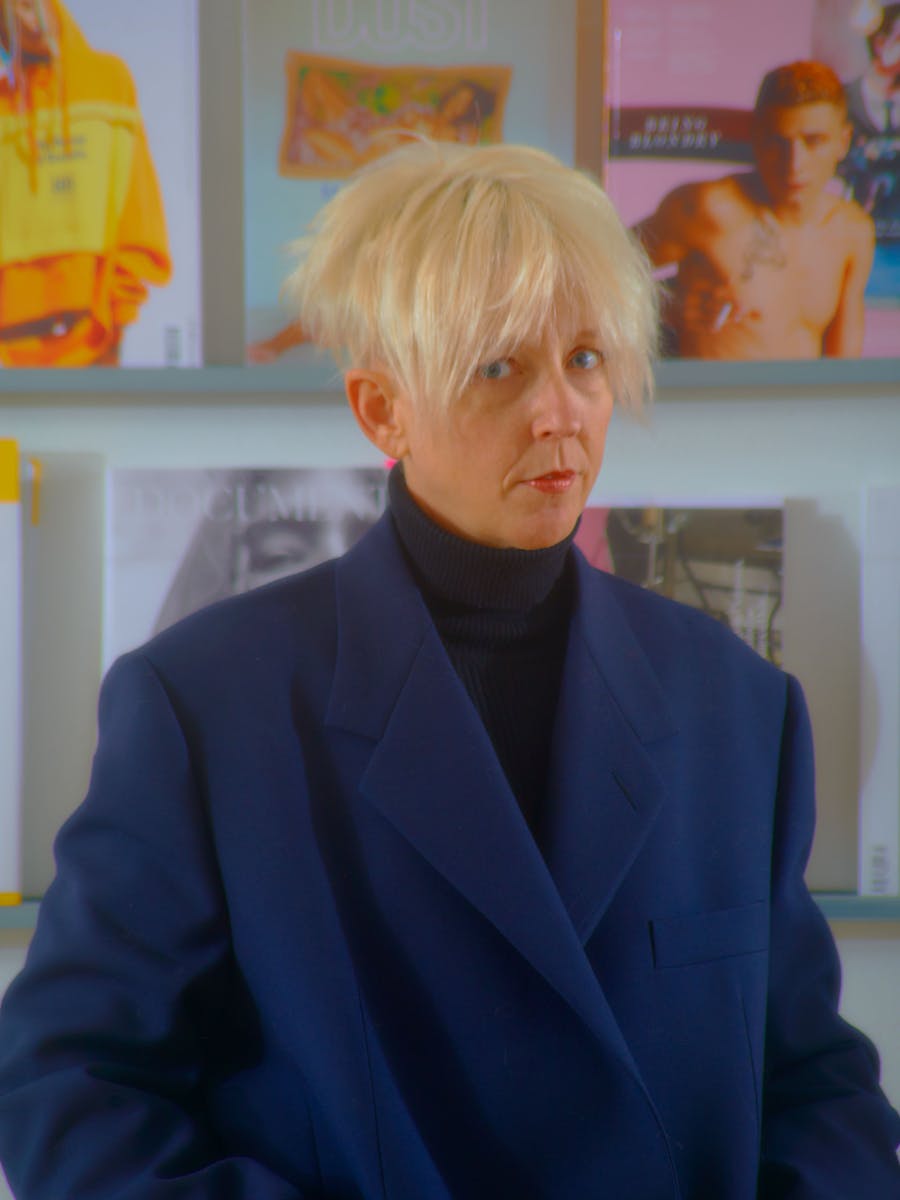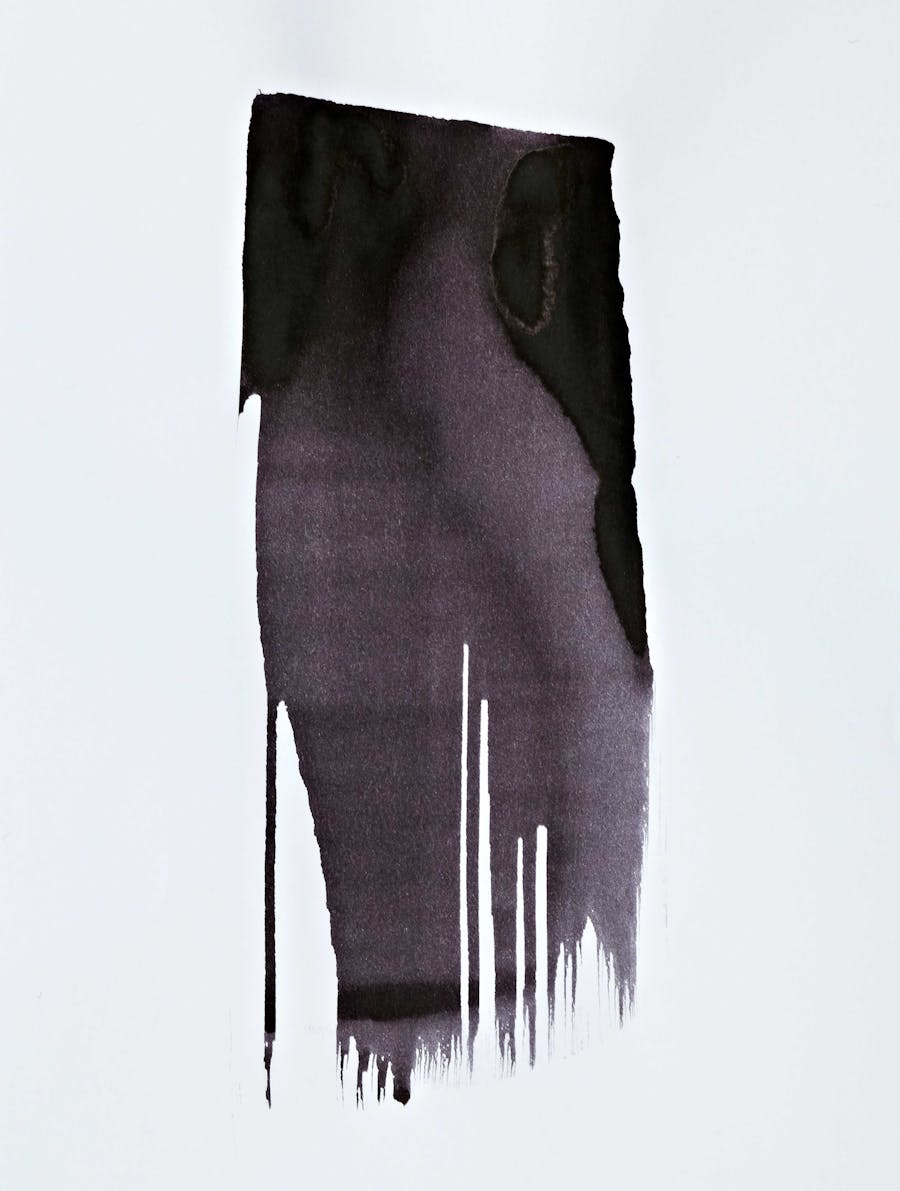From The Craft Issue
Abraham Ortuño Perez (Abra), Rachel Scott (Diotima), and Christopher Esber. Each, in their own way, embodies a new generation of designers for whom the artisanal gesture is integral to the way they envision fashion. A conversation with three creatives at the dawn of their journey — for whom craft is not a reference, but a foundation.
A conversation with Spanish designer Abraham Ortuño Pérez about instinct, irreverence, and the joy of creating things that don’t quite make sense.
The first thing you notice about Abra’s design is how little it tries to behave: it sparkles, swerves, spikes — flirtatious, albeit functional. For Abraham Ortuño Perez — the Spanish designer known simply as Abra — craft has always been about intuition over institution, revelry over rules. Raised in Alicante, the path he has carved has been steered by vim and vigour, not the safety of a readymade route. As a result, everything in his universe is animated by genuine pleasure, and filtered through his cheek and charm.
Did you always imagine a life in fashion?
ABRAHAM ORTUÑO PEREZ Yes, always! I grew up in Alicante and I just knew I wanted to work in fashion, but I had no idea how to get in. I did two years of pattern-cutting school, and then I started assisting Elena Cardona, who had worked at Margiela. I didn’t have a real academic background or anything — it was perfect timing.
And eventually, you ended up at Institut Français de la Mode (IFM). What was that experience like?
A. O. P. After three years of assisting, I applied — and somehow got in. But I was always more of a free spirit designer — very crafty, very intuitive, almost like an artist. Then I arrived at school and it was all about marketing and merchandising. They’d say, “This is a great idea, but it’s not a bag,” and I’d think, “What do you mean it’s not a bag? It is a bag — for me.”
That’s when you met Jacquemus, right?
A. O. P. Yes! He gave a talk at the school, I went up to him afterwards and just asked for a show invite. To my surprise, he didn’t have shoes in the show. I told him, “Listen, I’m an accessory designer. Do you need help?” And I got the job. I never went back to school.
You’ve worked with Jacquemus, Rabanne, Kenzo, and Jonathan Anderson. What is that collaboration like?
A. O. P. They give me research, and I give them designs. I always include one that’s a surprise. I want that reaction — “Oh my god, this is awful”; “Oh my god, this is incredible.”

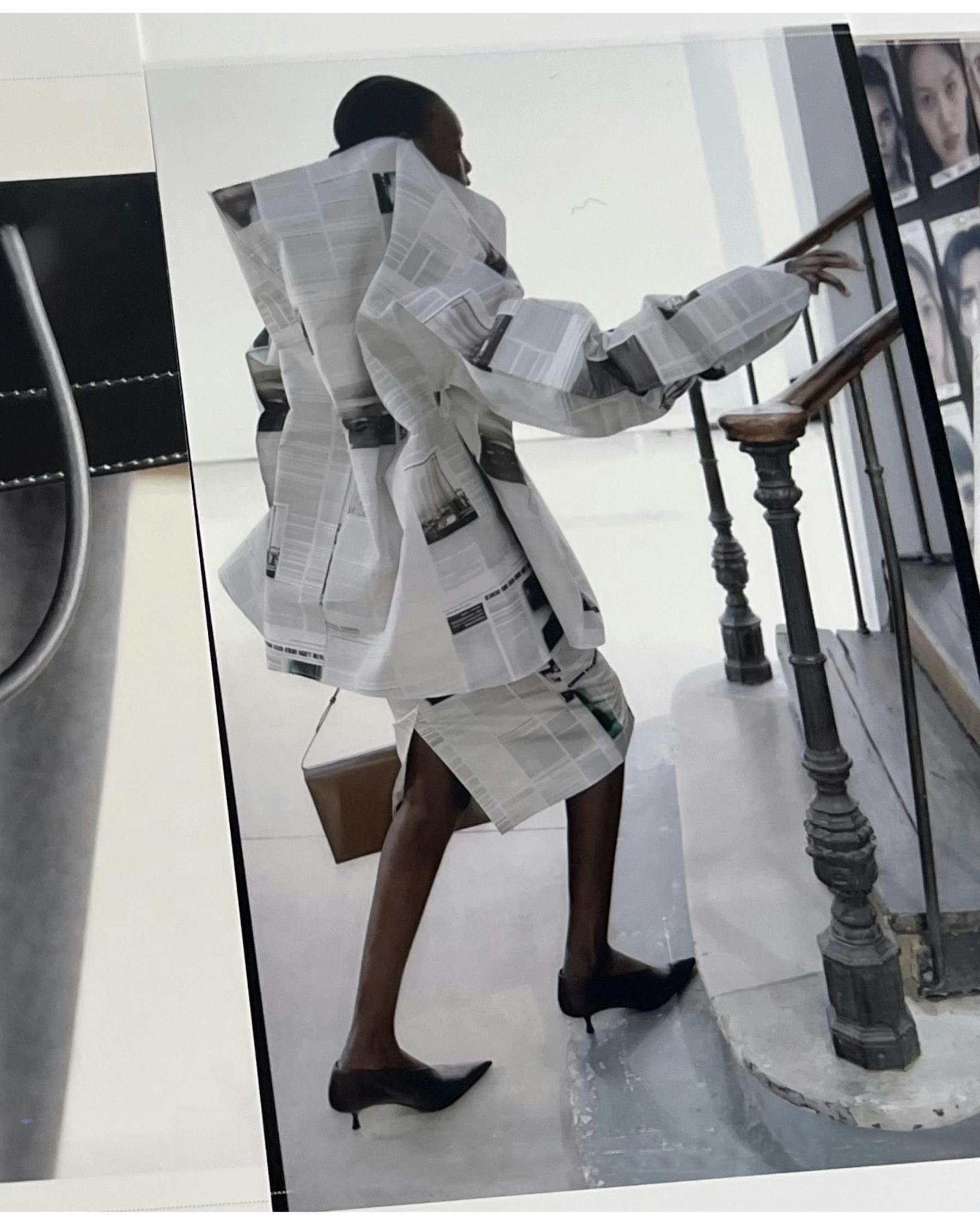
Do you think not having a traditional path has shaped your design voice?
A. O. P. For sure. I never learned the “right” way — and maybe that’s why I’ve never been afraid to do things the “wrong” way. A lot of my work sits on that line: it works, but it’s also a bit off. And I like that.
How did your own label, Abra, come about?
A. O. P. It started in 2019 — kind of by accident. I wanted a space to gather all the weird stuff I had in my head. Jonathan [Anderson] is the king of loafers — and I’m all about glitter and bows. We’re nothing alike. Abra is where I can really lean into that.
Your pieces — like the sneaker-ballerina or the spiked baguette bag — have such a specific energy. What guides you?
A. O. P. I’m interested in instinct. I want to make something you’ve never seen before — something where you’re not sure if it’s a joke or kind of genius. We were the first ones, I think, to really do this ballerina thing — men wearing pink shoes with a bow. I like to think we helped kick off that whole moment. But I’m not trying to be timeless. I want a reaction.
Tell me about your factory setup in Alicante.
A. O. P. The factory is in my hometown, and my siblings and cousins work there with me. On factory days, I wake up at six, take the first flight from Paris to Alicante, and go to the factory until two. Then I go home with my parents, we have lunch with the family, maybe I take a nap, and then I fly back to Paris. That’s the routine.
This rhythm is very different from that of the traditional fashion system.
A. O. P. Yeah, it’s a rhythm I really love. The industry is obsessed with scale, reach, speed. But for me, craft is about pleasure. And maybe that’s the point: to make something special, you don’t need rules. You just need to do you.

